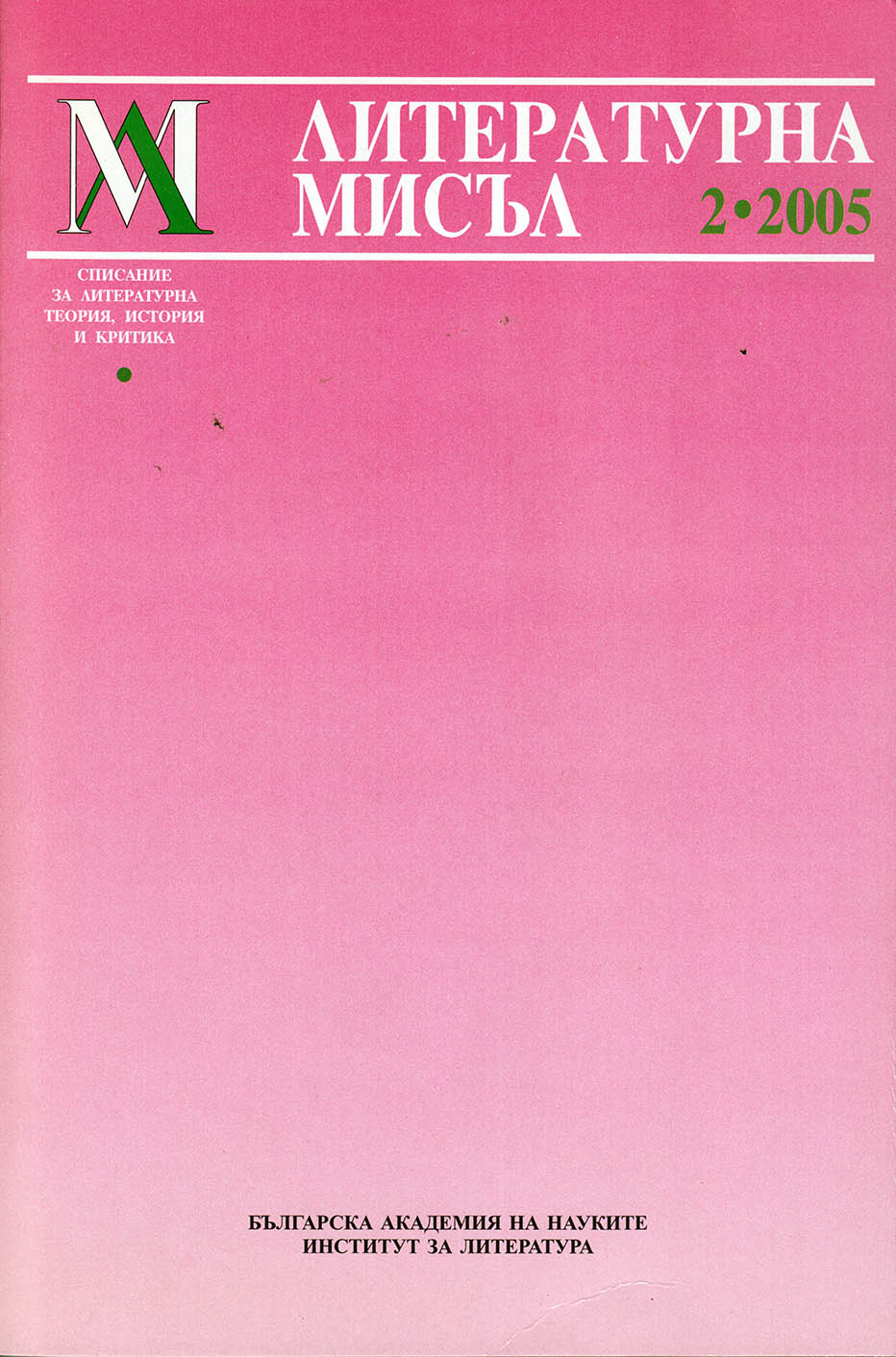Симптоматика на меланхоличното в българската поезия от 40-50-те год. на XIX в.
The Symptoms of Melancholic in Bulgarian Poetry from the 40s and 50s-of XIX century
Author(s): Anna AlexievaSubject(s): Literary Texts
Published by: Институт за литература - БАН
Summary/Abstract: The text deals with the depressive conditions of subjectivity, which, denominated with the concept of melancholy, is expressed in the Bulgarian Renaissance poetry from the 40s and 50s of XIX century. Provoked by the situation of love non-realization, these conditions elaborate their own language, assigned the task to describe the symptoms of melancholic. Thus, the articulation of a number of psychosomatic reactions such as cry, the feeling of „burning down to ashes“ with love, the claustrophobic adjustment to placement in uncozy, decreased spaces, the insurmountable attachment of the subject to the past, his impossibility to maintain social relations, etc. becomes possible. Love poetry from the middle of XIX century, which exposes the symptoms of melancholic, evidences the occurrence of considerable transformations in Bulgarian socio-cultural space. It presents a new role type — the melancholic person in love, whose image becomes an example to be followed, a regulator of everyday practices and behaviouristic models. In a wider perspective, this type of poetry marks an important development line in Bulgarian lyrics, which fluctuations might be revealed in the post-liberation love poetry.
Journal: Литературна мисъл
- Issue Year: 2005
- Issue No: 2
- Page Range: 176-191
- Page Count: 16
- Language: Bulgarian
- Content File-PDF

